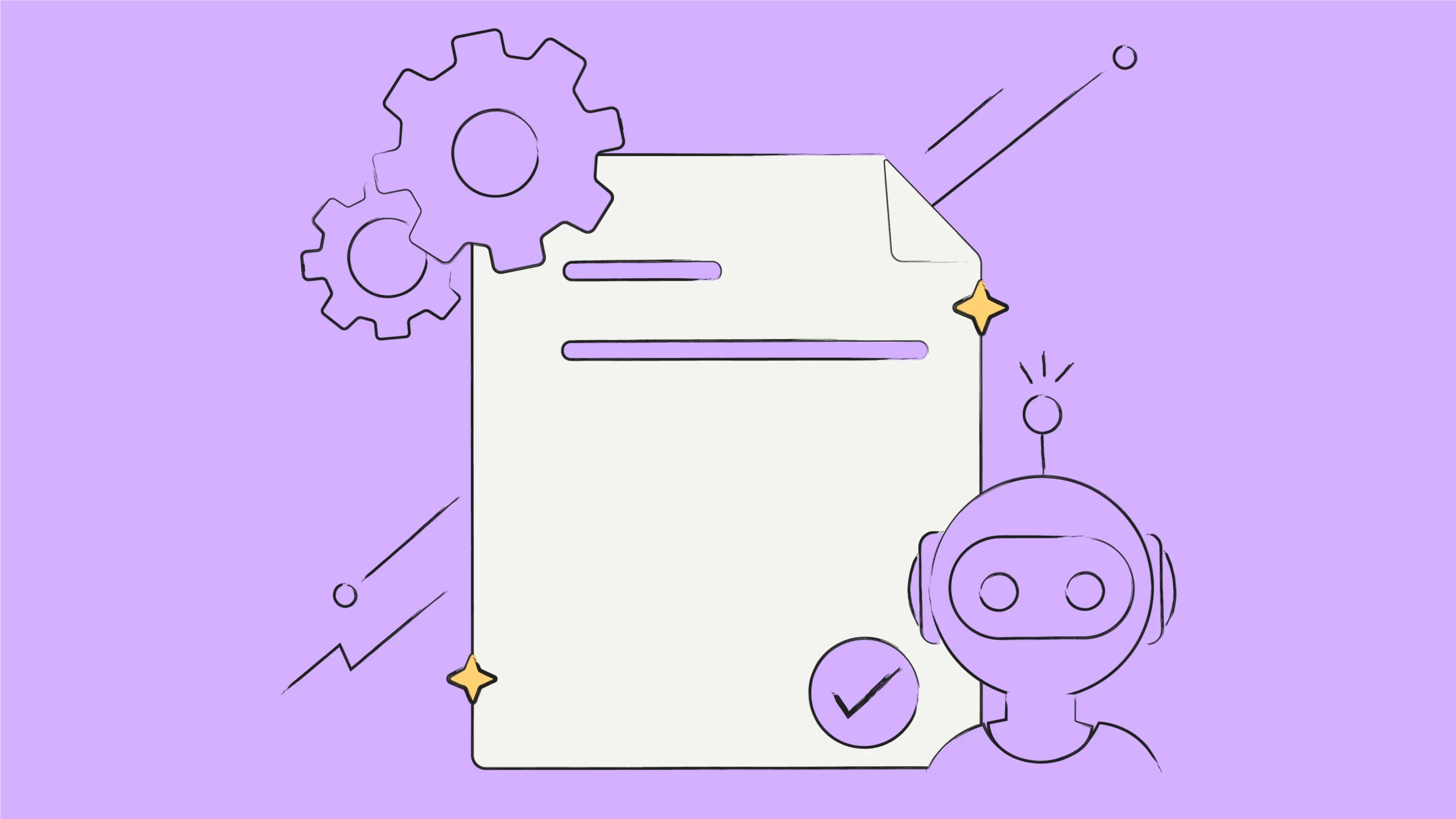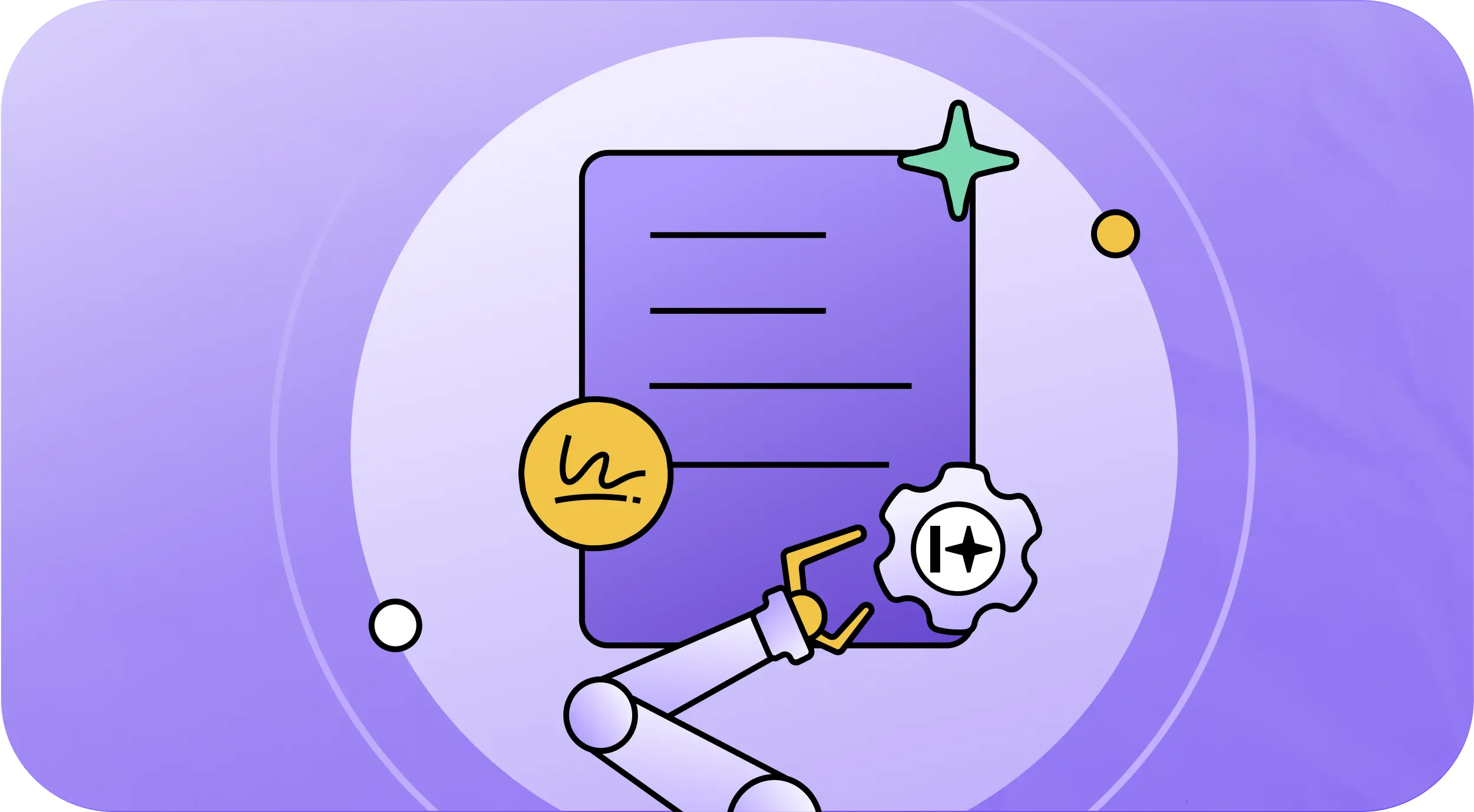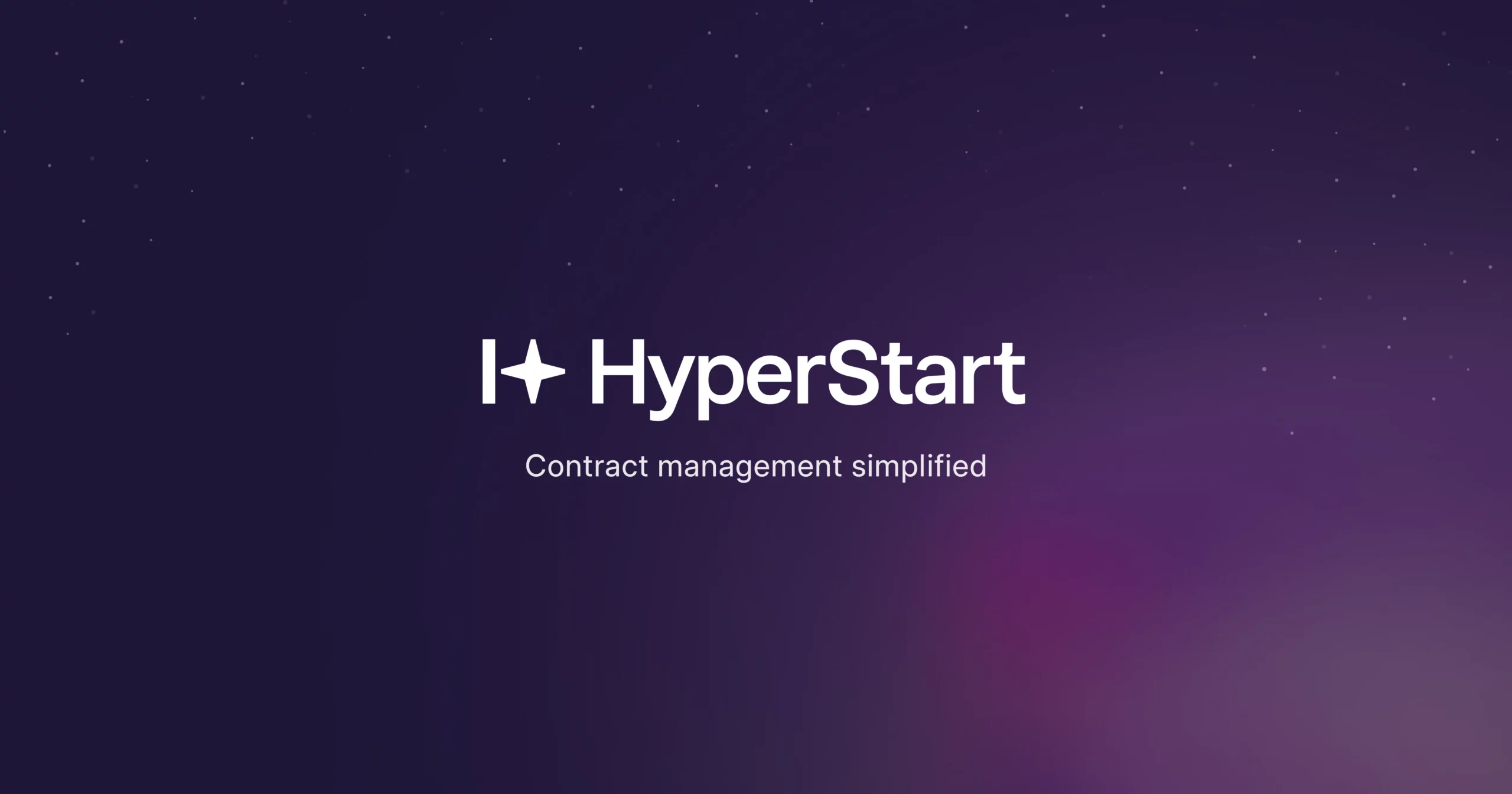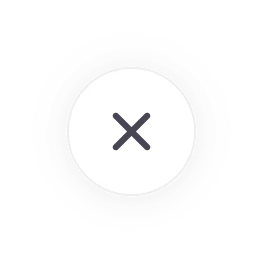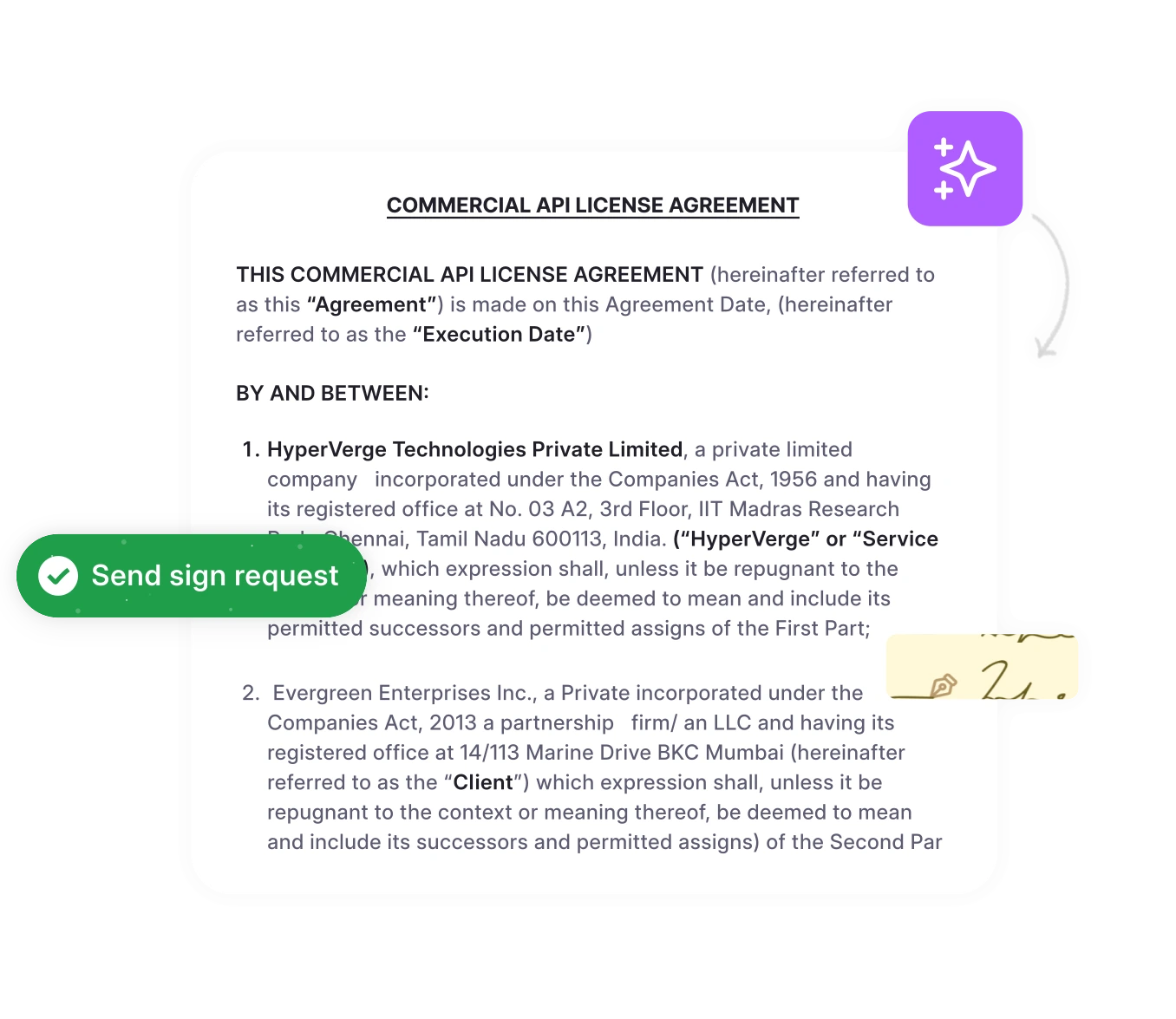The deal desk function aims to close the gap between legal, sales, and service functions to make sure handoffs are consistent and customers receive a high-quality experience.
Let’s learn more about how legal can standardize contracts for the
Understanding the deal desk function
Definition and purpose
Straddling sales, finance, and legal teams, the deal desk can help with faster, compliant, and profitable deal execution without sacrificing speed or accuracy. The sales team does not have to scramble between departments for approvals. It centralizes this process into one streamlined workflow.
Streamlining this workflow means less manual work, clearer oversight of contract terms, and a standardized approach to managing deals that reduces risk while accelerating time to revenue.
The role of a deal desk in modern sales
This role sits in the overlap between sales, finance, and legal to structure deals, spot blockers early, and keep revenue flowing smoothly, blending process, strategy, and collaboration.
In a traditional sales workflow, a sales rep negotiates terms, sends contracts for legal review, waits for finance to approve pricing, and closes the deal. The process is fragmented, slow, and prone to errors.
Deal desk-supported operations flip this model. Instead of sequential handoffs, you get parallel collaboration. While sales is negotiating, legal reviews contract terms, finance validates pricing structures, and operations ensures delivery capability.
That’s where CLM tools become game-changers. They provide the infrastructure for this cross-functional collaboration, offering visibility into every stage of the deal process and ensuring that legal teams can maintain compliance without bottlenecks in the sales pipeline.
How a deal desk works
Step-by-step process
The deal desk process follows a clear, repeatable structure:
- Deal intake: Sales submits a request via legal intake process
- Review: The deal desk team evaluates the request against standard criteria
- Collaboration: Stakeholders from legal, finance, and operations review simultaneously.
- Approval: Once all stakeholders sign off.
- Execution: Contracts are signed.
According to a 2023 survey, 49% of businesses saw an increase in their sales cycle length in 2023, with 52% seeing cycles increase by 10% or more. A well-structured deal desk process directly addresses this challenge.
Key players in a deal desk
Every deal desk involves multiple stakeholders:
- Sales reps initiate the request
- Finance teams validate pricing structures and discounts so deals meet profitability thresholds.
- Legal teams review contract terms, assess compliance and risk, negotiate custom clauses,
- Operations teams validate the capacities of service, implementation, and resource.
CLM platforms power these teams to work in parallel, where everyone can see deal status, add comments, request changes, and track approvals in real-time.
Collaboration and approval workflows
Structured workflows are what separate high-performing deal desks from administrative bottlenecks. Here’s what effective collaboration looks like:
- Conditional routing: Deals automatically route to the right approvers based on deal size, discount level, or custom terms.
- Parallel approvals: Both legal and finance teams work simultaneously.
- Document tracking: Every version of the contract is logged.
- Automated notifications: Stakeholders get alerts of approaching deadlines or when approvals are stuck.
For legal teams specifically, this means contract oversight, guardrails for compliance, and documentation that supports audits.
Core benefits of aligning legal ops with the deal desk function
Legal departments need strategic plans that align resources with business objectives. According to insights from Ten Things on legal department strategic planning, a well-structured plan provides.
Directions for the legal team
- Proactive risk management
- Better alignment of complex sales processes
- Increased efficiency and effectiveness in delivering legal services
- A framework for measuring performance and identifying areas for improvement
- Stakeholder confidence in the legal function
- A basis to make the case for asking for more resources for the legal team
When you implement a deal desk in harmony with the legal function, the benefits cascade into admin functions across teams.
Streamlined sales cycles
When contract review periods are slow and manual, sales reps need to meet targets. Legal teams cannot be rushed. A deal desk supported by CLM automation solves this tension. Pre-approved clause libraries mean legal teams can set contract boundaries. Sales gets faster approvals because they’re working within established guidelines. And when custom terms are necessary, the deal desk ensures the legal team reviews them immediately.
For instance, LeadSquared uses HyperStart’s AI review to analyze complex MSAs in under one minute, slashing their initial contract review time from 4-6 hours and accelerating deal velocity for their sales team.
Pricing and discount control
Finance teams aren’t the only ones who care about pricing. Deal desks create transparency around pricing decisions. When a sales rep requests a 40% discount, legal experts can see that immediately and ask, “What contractual concessions are we making to justify this?” This visibility helps legal teams spot patterns like big discounts with risky indemnification clauses.
CLM platforms can enforce pricing guardrails automatically. If a deal exceeds approved discount thresholds, it automatically routes to the deal desk for review.
Compliance and risk reduction
According to a recent KPMG report, up to 40% of a contract’s value can be lost due to contract lifecycle management inefficiencies.
Inefficiency includes unsigned contracts, missed renewal dates, unenforced terms, and no audit trail when things go wrong. A deal desk supported by CLM automation addresses these risks systematically:
- Standardization: Legally-approved clause libraries
- Visibility: Oversight of every deal in progress
- Audit trails: Every change, approval, and decision is documented
- Automated deadlines: Renewal dates and compliance checkpoints trigger automatic alerts
This speeds up timelines and significantly cuts down on administrative costs. More time saved means more time spent on engaging clients and driving business growth.
Read also: How to Manage IT Contracts Effectively
Data-driven decision-making
Data reveals that clients who agree to quarterly business reviews (QBRs) are 50% more likely to renew their contracts. Your team can prioritize including QBR clauses in future contracts to strengthen client relationships and increase renewal rates.
When your deal desk is integrated with CLM, you can:
- Analyze which contract terms correlate with faster close rates, so sales and legal pick their battles.
- Identify which customers request the most custom terms, to inform your customer segmentation and pricing strategy.
- Track which sales reps consistently stay within approved parameters, to allow you to reward good behavior and coach teams that need support.
- Measure legal team velocity, understanding average review times, approval bottlenecks, and capacity constraints.
This data transforms legal from a cost center into a strategic function.
Don’t get lost in the fine print
Standardize, track, and manage complex clauses across all your contracts.
Book a DemoCommon challenges (and how to overcome them)
Bottlenecks in contract review periods
For sales, this can affect their KPIs. Legal teams need to make sure compliance is ironclad.
The solution: CLM automation with pre-approved playbooks. From drafting and signatures to approvals and renewals, you stay on top of deadlines and ensure that closures and renewal opportunities aren’t delayed or missed.
Deal desks solve this by creating clear lanes:
- Fast lane: Standard deals with approved terms auto-approve or route through faster review
- Standard lane: Deals with minor variations, gets a streamlined review focused on exceptions
- Custom lane: Full legal attention to manage complex deals
This triaging ensures legal teams spend time on deals that genuinely need expertise, rather than paperwork.
Over-reliance on manual processes
When you’re manually entering contract data, mistakes happen. Wrong dates, missing clauses, forgotten obligations.
The solution: End-to-end CLM automation that plays nicely with your CRM. When a deal is marked “closed-won,” contract data should automatically flow to your CLM system. Signatures should be collected digitally through automated workflows. Renewal dates should populate automatically. Without anyone remembering to set a calendar reminder.
Qapita automated their entire deal process, using HyperStart’s approval workflows to reduce contract turnaround time by 75% and eliminate manual tracking across their portfolio of 2,400+ client contracts.
Lack of visibility across teams
Finance or sales ops teams often lack visibility into what’s happening with deals. They don’t know if legal has reviewed a contract, whether finance has approved pricing, or if operations has confirmed delivery capacity.
The solution: CLM platforms with role-based access to the workflow. Sales ops can see all deals awaiting approval. Finance can see all deals requiring pricing review. Legal can see all contracts with deviations. Everyone works in step.
Without proper controls on the contracting process, companies run the risk of signing too many weak contracts and experiencing revenue leaks.
The deal desk solution brings order to chaos by:
- Bringing order to a messy contracting landscape
- Streamlining how deals are negotiated and booked
- Minimizing weak contracts and strengthening a company’s revenue
Measuring contracting success for deal desk teams
Sales velocity
Sales velocity measures how quickly deals move through your pipeline.
For deal desk teams, the key metric is sales cycle length. Are you closing deals faster or slower than last quarter? According to a Sales Benchmark Report, the average sales cycle lengthened by 16% in H1 2023 and 38% compared to 2021.
Track cycle length by deal type:
- Standard deals should close with minimal deal desk involvement
- Complex or high-value deals may take longer
- Custom deals require deeper review or custom workflow configurations
If your sales velocity is declining, the deal desk can diagnose if deals are stalling at legal review, finance approval, or operational feasibility and address the bottleneck.
Financial impact
Deal desk metrics should tie directly to revenue. Track:
- Deal margin: Are approved deals meeting profitability targets? If average margins are declining, your deal desk might be approving too many discounts or concessions.
- Revenue leakage: How much potential revenue is lost to missed renewals, unbilled services, or unenforceable terms? Your CLM system should track this automatically.
- Upsell and cross-sell rates: Complex deals provide opportunities to sell additional products. Are you capturing these opportunities or leaving money on the table?
Read also, SLA Metrics and Best Practices
For example, if data reveals that clients who agree to quarterly business reviews (QBRs) are 50% more likely to renew their contracts, your team can prioritize including QBR clauses in future contracts to strengthen client relationships and increase renewal rates.
Stakeholder satisfaction
Happy stakeholders mean your deal desk is working. Survey your internal customers regularly:
Sales satisfaction: Do sales reps feel the deal desk helps or hinders them?
Legal satisfaction: Do legal feel they have adequate time to review deals?
Customer satisfaction: Do customers experience a smooth contracting process?
When satisfaction scores drop, investigate immediately. Often, the issue isn’t the deal desk process itself but communication gaps or unclear expectations.
Operational efficiency metrics
The nuts and bolts matter:
- Average time to approval: How long does each approval stage take?
- Approval bottlenecks: Which stakeholders consistently delay approvals?
- Contract error rates: How often do contracts require amendments post-signature?
- Version control issues: How often do teams work from outdated contract versions?
No more version chaos
Streamline legally approved workflows and version clarity, perfectly married to your CRM.
Book a DemoThe future of deal desks
The deal desk function is evolving rapidly, driven by advances in AI, automation, and digital transformation.
- AI-assisted deal reviews: Instead of legal teams manually reviewing every contract, AI can flag risky clauses, suggest approved language.
- Predictive pricing: Machine learning algorithms can recommend optimal pricing for new opportunities based on company size, industry, competitive dynamics, and customer behavior.
- Dynamic approvals: Rather than static approval workflows, AI can dynamically route deals based on risk scores that consider multiple variables simultaneously.
- Integrated analytics: Deal desks will increasingly serve as data hubs, providing insights not just on individual deals but on broader patterns like which products drive the most margin, which customers require the most custom terms, and which sales tactics correlate with faster close rates.
The common thread in all these innovations? They free legal teams from administrative work and position them as strategic advisors who help the company grow profitably while managing risk intelligently.
Frequently asked questions
CLM platforms integrated with CRM systems make these automations possible, cutting approval times significantly while reducing errors. Read also, How to Manage Contracts Directly in HubSpot



